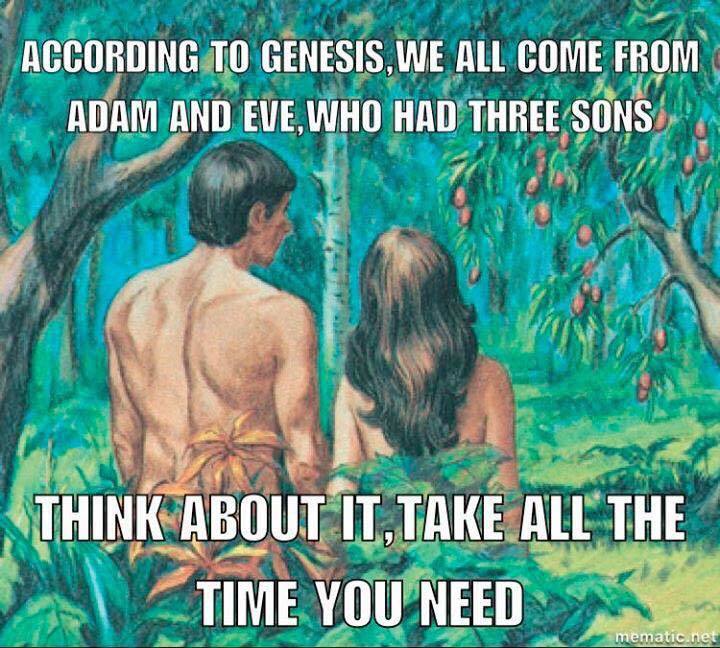My explanation in the context of the Flood and Noah’s Ark (I)
To answer the different objections in the preceding posts and avoid misunderstandings I first show how my explanation works in the context of the Flood and Noah’s Ark.
1.Truth of Revelation
In agreement with BioLogos I believe that the Flood was an actual historical event (although interpreted and retold in Genesis in the rhetoric and theology of ancient Israel). The basis of this belief is the teaching of Jesus Christ himself and the Apostle Peter (Matthew 24:38; Luke 17:27; 1 Peter 3:20; 2 Peter 2:5), who support the following statements:
- Noah is a real historical person who was righteous and saved from the Flood through the Ark.
- Noah’s family (seven persons) was also within the Ark and became saved.
- All other human persons existing on earth at this time perished in the Flood.
Since Jesus Christ is “fully God and fully Man”, the Incarnated God’s Son and Word (John 1), His interpretation of the Old Testament should be taken seriously by any Christian believer, and not be thought to be merely a myth or fable. Accordingly one should accept the two verses Genesis 6:18 and 8:18, where it is stated that in the Ark sojourned 4 couples (Noah and his wife, together with their three sons and the three sons’ wives), and Genesis 7:23 stating that only Noah was saved, and those with him in the ark. By contrast other things in the narrative of the Flood in Genesis 6-9 which are not taught by Jesus Christ and the Apostle Peter may be considered parable or hyperbole.
2.Truth of Science
The context of Genesis allows us to date the Flood not much earlier than 3000 BC, and therefore, on the basis of the results in evolutionary genetics, we are led to the conclusion that today’s humanity cannot be genetically descended from the 4 couples saved through Noah’s Ark.
As a scientist and Christian believer I feel the necessity of giving a logically consistent account integrating the Truth of Revelation (Point 1) and the Truth of Science (Point 2) above. For me this is not “concordism” but simply a matter of intellectual honesty, and in my opinion also an inescapable moral duty of Christian scientists and theologians toward believers.
The account I propose describes a Flood which is both, regional and global:
-
Regional in the sense that the geographic area which was flooded can be considered limited to the region around the five antediluvians Sumerian cities in Mesopotamia.
-
Global in the sense that all Noah’s contemporaries living in this region died in the Flood (the 8 in the Ark excluded), where I assume that these some tens thousands of people were all the human persons existing on earth at this time.
At the same time, millions of non-personal human animals lived outside the flooded region (that is, almost the whole planet). They were Homo sapiens animals which had not yet been transformed by God into persons. Obviously outside the flooded region lived practically all the other animal species we know today as well.
The key point of my explanation is that after the Flood God transformed all non-personal human animals living on earth into persons with awareness of moral responsibility and sense of law, the same way as He did to create the primeval human persons (I will come to this later in a separate post; for the moment I refer to my Essay and my Article with References therein).
If one accepts this account, then it becomes clear that the “Ark” was not only the wood vessel which Noah built and entered in with his family, but also the part of the planet outside the flooded region: It was really a huge “Ark” (much bigger than the AiG’s one in Kentucky) with more than enough place for all animal species living today!
Additionally, after the Flood a new humanity arises descending from Noah’s family and several millions of new created human persons. To this extent the account fits well with the data of evolutionary genetics.
This account is supported by Genesis 9:3-6, where for the first time in the Bible appears the prohibition of killing any creature belonging to humanity because mankind is made in the image of God: “Every single violation of this limit, be it based on national, racial or ideological grounds is here condemned” [Wenham, G.J. p. 251]. Thus Genesis 9:3-6 establishes the universal brotherhood of all humans and the foundation of morality and law: The living human body is the visible, empirical and distinguishable basis for ascertaining personhood and assigning rights. One can also note that the remark in Genesis 9:3 concerning food indicates a degree of distinction between humanity and the animal kingdom that was lacking in the vegetarian diet of Genesis 1:29 ” [Wenham, G.J. p. 263-264]. All this means that since the moment of Covenant between God and Noah the possibility of non-personal human animals on earth remains definitely excluded.
Accordingly, my explanation supports beaglelady:
It supports Brad as well:
And supports the principle that human embryos, unborn children, disabled people are fully human, and therefore also for them we should with Stephen
In coming posts I will continue addressing other raised objections and comments (in particular Al Leo’s epigenetic hypothesis) with reference to the precedent scenario of the Flood.
